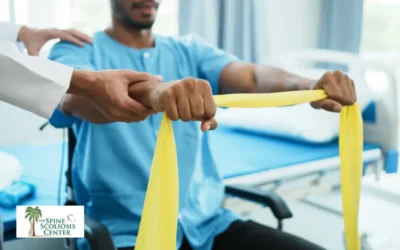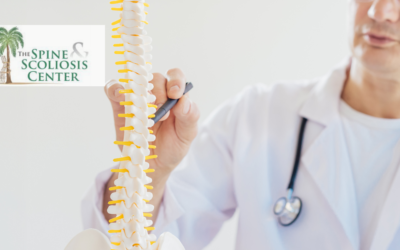Most young people may take their spinal health for granted, and think that a bad back is just a symptom of old age. However, people of all ages- including young adults- are susceptible to spinal problems that can worsen with age. The spine plays a crucial role in daily function, and maintaining a healthy spine is key if you want to have a high quality of life and remain mobile without pain. The spine provides support and mobility, allowing us to stand, sit, and move in all the ways we need to throughout our everyday lives. It also protects the nervous system and the spinal cord, which is responsible for relaying messages between our body and brain. If spine health is poor, it can significantly impact your day-to-day life, as it results in chronic pain and inability to do things like walk, run, and dance. Plus, chronic back pain can hinder our emotional and mental well-being, which is why it’s important to take care of your spine at any age.
Young People Can Have Spinal Problems Too
Some common spine-related issues that young people may suffer from include:
- Muscle strain: Strenuous activities such as heavy lifting, running, and intense exercise can result in muscle strain and pain if proper form is not maintained.
- Poor posture: In the age of smartphones, computers, and binge-watching TV on the couch, we often spend long periods of time in non-ergonomic positions. Over time, this can result in spinal strain and muscle imbalances.
- Spondylosis and sciatica: Obesity, particularly truncal obesity, and overuse injuries may result in these uncomfortable conditions.
- Herniated discs: While herniated discs become more common as we age, it can still affect younger people. Lifting heavy loads with poor form can displace the discs that cushion each vertebrae, resulting in compressed and irritated nerves and radiating pain.
6 Tips For A Healthy Spine
- Exercising regularly is key to spine health, as it keeps the muscles that protect the spine strong and supple. While any form of moderate aerobic or anaerobic exercise will be beneficial, core-strengthening exercises like pilates, yoga are particularly good for this.
- When you sit, stand, or walk, try and maintain good posture; don’t slouch or sit in awkward positions until your back hurts. If you have to sit for long periods of time, make sure you’re sitting in an ergonomically correct position. Remember that accumulated bad habits can have long-term consequences.
- Lift with your legs so you don’t strain your back. When lifting something heavy, bend your knees and use your leg muscles rather than bending at the waist straight-legged to avoid straining your back.
- Avoid being sedentary for prolonged periods of time, and stay active even if you’re at your desk. You can go for a quick stroll on your lunch break, for example, or stand up every once in a while and do some simple stretches at your desk.
- Stretch on a regular basis to keep your body supple and mobile. Mobility is key to spine health, and vice-versa.
- Sleep is essential to health, so try and get a minimum of 6-8 hours of sleep every night. Align your body correctly with the necessary pillow and mattress positioning.
Contact Us Today
Spinal health is key to overall quality of life for every age group. If you are looking for a spinal specialist in Florida, call the Spine and Scoliosis Center to make an appointment today.




0 Comments